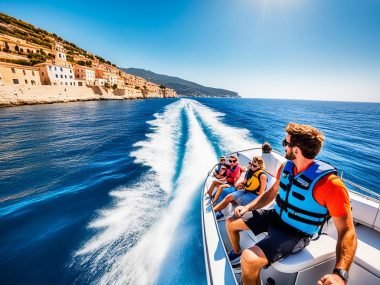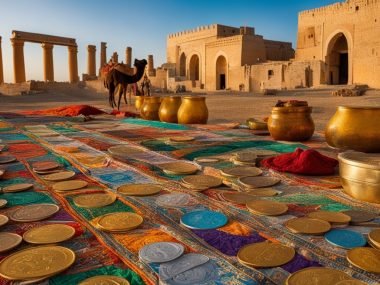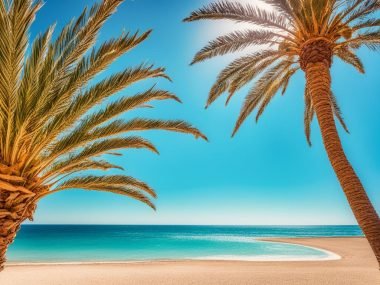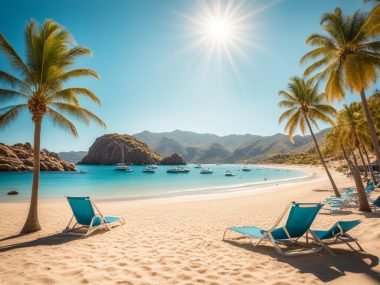Tunisia saw a 50% drop in visitors after the 2015 ISIS attacks. This big fall hurt the economy, society, and cultural traditions a lot.
Tourism in Tunisia used to be very affordable and popular. But now, it’s facing lots of problems. The issues include safety worries from past events and media stories. Still, Tunisia has less crime than many places in Europe.
After the Arab Spring, Tunisia made good progress in human rights and democracy. But it still has problems with some conservative groups. These issues make people unsure about visiting, adding to tourism’s big challenges.
Key Takeaways
- The 2015 ISIS attacks triggered a significant decline in tourism.
- Media perceptions have profoundly influenced Tunisia’s tourism industry.
- Despite an increase, crime levels in Tunisia are lower than in many European nations.
- The Arab Spring brought both progress and tension, affecting tourist influx.
- Safety concerns remain a persistent challenge for the Tunisian tourism sector.
Economic Instability
Tunisia was doing well because of its lively tourism sector. But after the 2015 terrorist attacks, things changed a lot. The country saw a big drop in visitors, which hurt its economy.
Some say things are getting better, but many tourist spots are still empty. The crash of tourism hurts many who rely on it. The trouble got worse because the government was slow to react after the Arab Spring.
| Year | Tourism Revenue (€ billion) | Economic Impact |
|---|---|---|
| 2014 | 1.8 | Stable tourism with minor economic issues |
| 2015 | 1.26 | Significant drop due to terrorist attacks |
| 2016 | 1.3 | Slow recovery, persistent economic challenges |
| 2020 | 0.7 | Pandemic exacerbates economic instability |
The fall of tourism has made it hard for Tunisia. It has caused social and economic problems. The government and others must work together. They need to make tourism safe and strong again.
Cultural Erosion
Tourists flocking to Tunisia has positives, like more jobs in farming and crafts. But, the erosion of Tunisian culture raises big worries.
Impact on Local Traditions
The focus on coastal tourism hurts inland traditions. Traditional crafts and ways of life are ignored. This can make locals unhappy and erase Tunisia’s rich culture.
Coastal resorts often choose modern over traditional. This might make Tunisia lose its precious customs.
Influence of Western Culture
The rise in tourism brings more Western ways to Tunisia. Tourist spots now aim to please Western guests. This changes local life and may wash away Tunisian uniqueness.
Environmental Degradation
Tourism is growing fast in Tunisia. This growth has brought big environmental problems. Building to support tourists has hurt nature a lot.
Coastal Damage
Coastal areas have seen some serious harm. Big hotels and resorts on the beaches of Hammamet and Nabeul have changed nature. This harms homes of sea and beach creatures, affecting local wildlife.

Resource Depletion
Tourist spots use lots of water and energy. Big hotels need lots of water. This makes local water supplies run low. It causes problems between tourists and locals.
Overusing resources can harm nature for a long time. It ups the stress on our planet’s resources. We need to be careful with how we use them.
Tourism helps Tunisia’s money situation. But, its bad side on nature must be handled well. Teaching tourists to be kind to nature can help. So can making tougher rules on using resources.
Negative Social Impacts
Tunisia faces big social issues due to more tourists. Even though crime is mostly low, some places see more petty crime. This rise is linked to hard times after the revolution.
Increase in Crime
Petty crime has gone up in places tourists like. It happened after the economy dipped post-revolution. So, in packed areas, tourists should watch out as small thefts are happening more.
Harassment Issues
Harassment, especially towards women tourists, is a big worry. Many have faced unwanted comments or actions. Such problems show deeper issues in Tunisia. Solutions need educating locals and better safety for tourists.
| Category | Issue | Impact |
|---|---|---|
| Crime | Petty theft | Heightened security concerns for tourists |
| Harassment | Verbal and physical | Deters female tourists, affects overall tourism experience |
Safety Concerns Due to Terrorism
Terrorism has deeply affected Tunisia’s tourism. The country was a top choice for budget travelers. But terror attacks in 2015 changed everything. They sharply decreased the number of tourists.
Impact of Historical Attacks
The 2015 attacks hit tourist spots hard. Visitor numbers quickly dropped. This hurt Tunisia’s tourism and its economy. The terrorism impact on Tunisia’s tourism still worries potential visitors.
Travel Advisory Recommendations
After the attacks, countries warned against traveling to Tunisia. These warnings affected how people see Tunisia’s safety for tourists. Despite better security now, the attacks’ memories affect tourism recovery.
Problems of Tourism in Tunisia
Tunisia’s tourism has benefits and issues. An issue is its shaky economy. This problem stems mostly from too much focus on old tourism ways, like beach resorts. Such methods don’t help all parts of Tunisia equally, causing imbalance.
Another big issue is how tourism affects Tunisia’s culture. Local ways are getting lost as Western habits spread. The chase to please tourists can ignore the value of Tunisia’s own culture, hurting its identity.
The harm tourism does to nature is also a worry. Coastal spots, in particular, suffer harm, impacting fragile life and using up resources. This not only hurts tourist areas but has broader bad effects on locals and their jobs.

Tourism brings social problems too, like more crime and bothering people, especially women. These issues show bigger challenges in society that must be looked at.
There are safety worries too, after attacks in the past. Efforts to make Tunisia look safe still struggle against these memories, making people think twice about visiting.
To solve tourism issues in Tunisia, we need new, sustainable ways. Changing practices is key to fixing Tunisian tourism disadvantages for a better future for everyone involved.
| Issue | Impact |
|---|---|
| Economic Volatility | Uneven distribution of benefits, regional disparities |
| Cultural Erosion | Loss of local traditions, Westernisation |
| Environmental Stress | Coastal damage, resource depletion |
| Social Issues | Increased crime, harassment |
| Safety Concerns | Deterrence of potential travellers |
Economic Dependency
Tunisia’s tourism is vital to its money-making ways. Many people come to its beach spots. These places bring in lots of money from outside the country.
Reliance on Foreign Investment
The country really counts on tourism for money. Changes in tourist numbers can hit hard. Money from countries like France and Germany has grown the tourist areas. Yet, leaning so much on outside money can make things wobbly when the world economy changes.
Seasonal Employment Issues
Many jobs in tourism are just for certain times of the year. When tourism is booming, lots of people have work. But when it’s not tourist season, too many don’t have jobs. This shows how risky it is to rely so much on tourism for jobs.
| Factor | Impact on Economy | Stability |
|---|---|---|
| Foreign Investment | High impact on infrastructure and development | Unstable due to external economic trends |
| Seasonal Employment | Increases during tourist seasons | Unsustainable and unpredictable |
| Economic Reliance on Tourism | Major contributor to GDP | Highly volatile, dependent on tourist influx |
In short, tourism’s big role in Tunisia’s money matters brings challenges. To fix this, the country should try different ways to make money. It should also rely less on cash from other countries.
Infrastructure Strain
Tunisia’s tourism sector is under pressure because of its weak infrastructure. The country’s transport system struggles to keep up with the increase in visitors. This causes big problems for both holidaymakers and locals.
Transportation Challenges
The transport system in Tunisia faces many problems, especially with more tourists coming. Buses and trains get too crowded. This overcrowding makes travel hard and disrupts the lives of people living there. Besides, the transport needs constant fixing and updates, making things worse.
Overcrowded Tourist Spots
Overcrowding in Tunisian destinations is a big problem too. Places like Carthage, Tunis souks, and Hammamet beaches get too many visitors. This spoils the visit for tourists and hurts local facilities, including eateries and waste services.
| Key Issues | Impact |
|---|---|
| Infrastructure Challenges in Tunisia | Strain on public services and amenities |
| Transport System in Tunisia | Overloaded and sometimes inefficient |
| Overcrowding in Tunisian Destinations | Decline in tourist experience and local quality of life |
It’s vital to tackle these infrastructure problems to make Tunisia better for tourists and locals. Improving transport and handling overcrowding will help everyone enjoy a better environment.
Conclusion
Tourism has helped Tunisia grow but has its downsides. These include money problems, lost culture, harm to nature, and rising social troubles. These issues show we need to change and use better ways in tourism.
Tunisia is sometimes seen as unsafe due to past attacks. This slows down its recovery. Too much focus on regular tourism and not enough on better options is a problem. We must aim for tougher and fairer tourism kinds.
Looking at Tunisia’s tourism future, it’s important to tackle these big challenges. We should use sustainable ways and include everyone. This will help tourism support local people more. Then, tourism can really help Tunisia move forward and do well.







